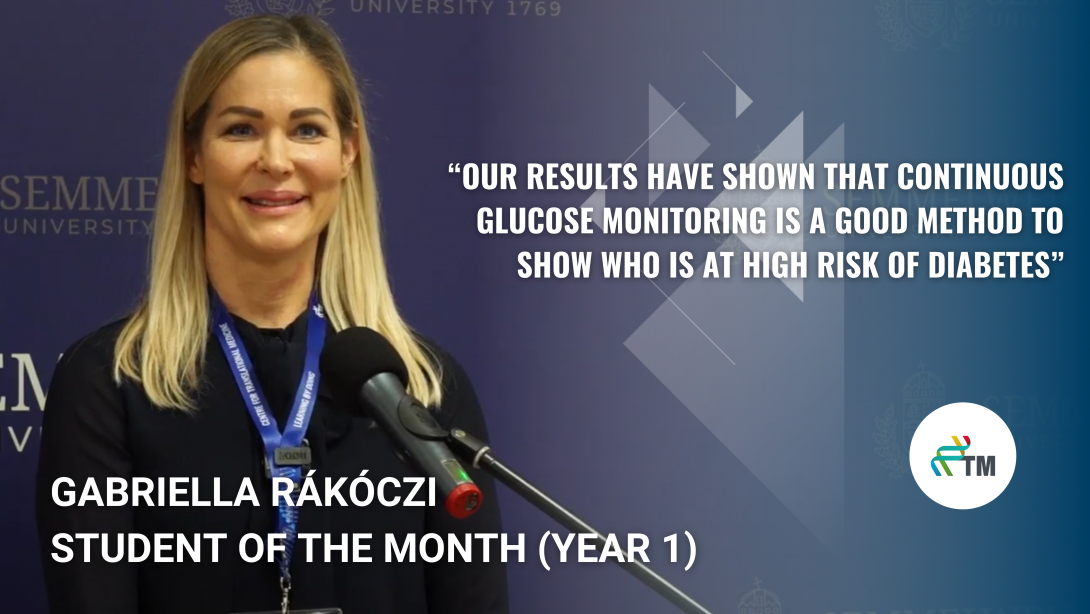
She is an excellent student of the Miscellaneous Group, very perseverant and hard-working, and showed great progress in her latest progress report. She has all the results she needed for her research and is finalizing her manuscript. In February, Gabriella Rákóczi was named Ph.D. student of the month (1st year) at the Centre for Translational Medicine.
Gabriella Rákóczi is a nutritionist who investigates the effectiveness of continuous blood glucose monitoring (CGM) in non-diabetic people. She aims to find out how this method can be utilized to predict whether a healthy person will develop diabetes later. “I have been involved in this issue for a long time. Blood glucose measurement has been in my focus because my mother is suffering from diabetes, so I know how uncomfortable it is to measure blood glucose in the traditional way, with a finger prick test. When I was at a conference in Berlin, I learned about continuous glucose monitoring, a method using a sensor placed under the skin to measure blood sugar level. This tool has been used for over 20 years. It is beneficial because it gives data to an integrated insulin pump or smart insulin pen to help provide actionable insights.”
In her first project, Gabriella investigated whether CGM could be used for preventive purposes. This could be important for patients who are not yet diabetic but already have abnormalities in their blood glucose levels. Such abnormalities can be detected by continuous glucose monitoring even if normal blood glucose levels show no problems. “The manuscript of this research is almost finalized. Our results have shown that CGM is indeed a good indicator of who has abnormal glucose tolerance and who has normal glucose tolerance. This means that continuous glucose monitoring is a good method to show who is at high risk of diabetes. This information is useful, because in such cases, more attention should be paid to diabetes prevention.” Gabriella has already started her second project, a registry analysis, where she will analyze data from almost 10,000 people, in collaboration with the Weizmann Institute of Science. Gabriella will also have a third project in which she will investigate the effect of non-pharmacological intervention on the reversal of type 2 diabetes.
(Szabó Emese)